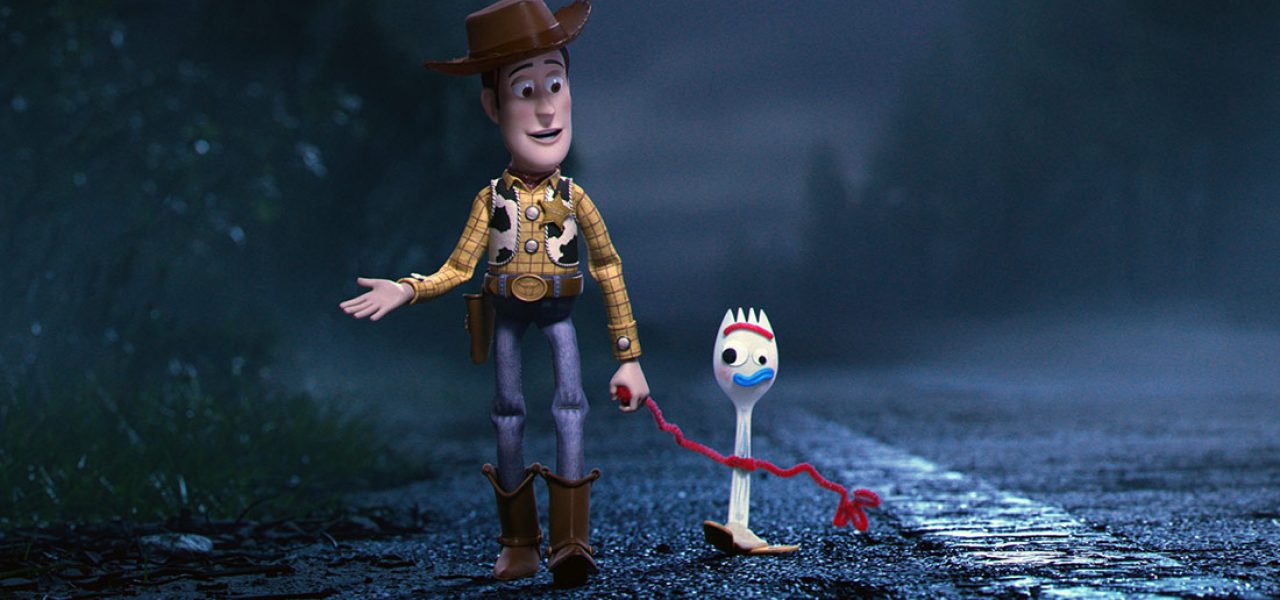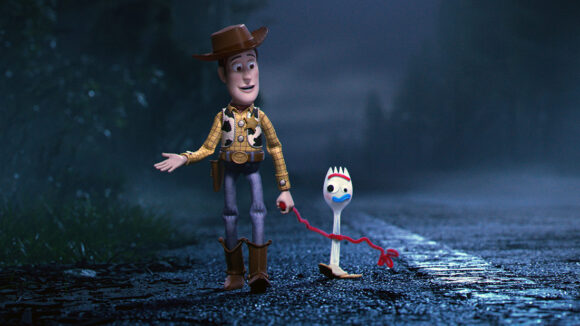

2020 Academy Awards: ‘Toy Story 4,’ ‘Hair Love’ Win Oscars
In an animation awards season that celebrated the breadth and diversity of animation as an art form, and during which a variety of films won awards, including the hybrid stop-motion/cg Missing Link, the innovative hand-drawn Klaus, and the hybrid cg/drawn I Lost My Body, the 92nd edition of the Academy Awards chose convention over innovation and presented its award to the fourth installment of Disney-Pixar’s Toy Story franchise.
The award marks the 11th time in the last 13 years that the Walt Disney Company has won this award, giving them a highly abnormal and unprecedented ownership of a single Oscar category. (The awards, presented at the Dolby Theatre in Hollywood, California, were broadcast live tonight on the Disney-owned ABC network.)
The animated features that went up against the Josh Cooley-directed Toy Story 4 were How to Train Your Dragon: The Hidden World, I Lost My Body, Klaus, and Missing Link.
As explained earlier in a Twitter thread (see below), Toy Story 4 was the anticipated winner even though the film had been relatively quiet during awards season. Its other key award during its campaign was the Producers Guild Award, but it missed out on the Golden Globe, BAFTA, Annie, and VES honors.
The number of times the Walt Disney Company has won Best Animated Feature in the last decade among each organization:
Oscars: 8
Critics Choice: 7
PGA: 7
VES: 6
Golden Globe: 6
National Board of Review: 5
Annies: 5
NY Film Critics: 4
SF Film Critics: 3
LA Film Critics: 2— CartoonBrew.com – Animation News (@cartoonbrew) January 28, 2020
Based on this data, it's hard to argue that TOY STORY 4 isn't the Oscar frontrunner since The Academy, more than any other organization, instinctively votes for Disney-produced films.
— CartoonBrew.com – Animation News (@cartoonbrew) January 28, 2020
Only 2 instances in last decade the Academy hasn't awarded Disney was SPIDER-VERSE (a cultural phenomenon) and the year that Disney submitted CARS 2. So as long as a Disney film is better than CARS 2 (not that hard) and isn't SPIDER-VERSE, odds are strong that it'll win an Oscar.
— CartoonBrew.com – Animation News (@cartoonbrew) January 28, 2020
Having said all this, it'd be cool if the Academy matured its views on animation as an art form and surprised us by recognizing the diverse artistry and craftsmanship across all animation filmmaking (and not just a single corporation's output).
— CartoonBrew.com – Animation News (@cartoonbrew) January 28, 2020
In the animated short category, Hair Love won the Oscar. Co-directors Matthew A. Cherry, Everett Downing Jr., and Bruce W. Smith become the first African-American directors to win the category in the history of the award. Also, Hair Love’s producer, Karen Rupert Toliver, became the first African-American woman to produce a winning film in this category. (The first African-American to win an Oscar in this category was Kobe Bryant for the 2018 winner Dear Basketball though he won in the capacity of producer, not director. In his acceptance speech, Cherry dedicated the award to Bryant.)
The Hair Love win also marks the second year in a row that Sony Pictures Animation (SPA) has won an Oscar in an animation category (Spider-Man: Into the Spider-Verse won best animated feature in 2019). It’s a remarkable turnaround for a studio that was widely seen as a creative wasteland prior to the release of Spider-Verse. As Sony Animation execs are fond of saying, the strength of their current studio is not having a house style or having to meet audience expectations of what a SPA film should be. Spider-Verse and Hair Love are proof that the model is working, and there are rewards to be had for not following the playbook of their competitors.
The other nominated shorts in the category were Dcera (Daughter), Kitbull, Memorable, and Sister.
#Oscars Moment: Hair Love wins Best Animated Short Film! pic.twitter.com/LjInB0ejmy
— The Academy (@TheAcademy) February 10, 2020
In the best visual effects category, the award was presented to 1917 (Guillaume Rocheron, Greg Butler and Dominic Tuohy), beating out a trio of flashy Disney contenders — Avengers: Endgame, The Lion King, and Star Wars: The Rise of Skywalker — as well as The Irishman, which failed to win in any of the ten categories it was nominated in.
The visual effects category was presented with a joke about Cats, an obvious nod to the film’s widely-panned visual effects. But as the Visual Effects Society pointed out in a tweet, it’s unfair to scapegoat visual effects artists for poor choices made by a director, producers, and studio executives. And it’s an especially poor way to present an award that purportedly honors the work of visual effects artists.
.@TheAcademy – visual effects practitioners deserve immense respect for the artists & technicians & innovators they are and for their remarkable contributions to filmed entertainment. VFX is not a punchline or a proper scapegoat. Everything starts with a good story. #Oscars2020 https://t.co/JSxXVbDwpa
— VisualEffectsSociety (@VFXSociety) February 10, 2020

.png)